Classic Interview: Tom DeLonge talks Blink-182 evolution – "We were nowhere near as good as Travis, but we got better"
“They say Einstein died while he was still trying to figure out gravity. I think I’m going to die still trying to figure out some of the things about Blink"
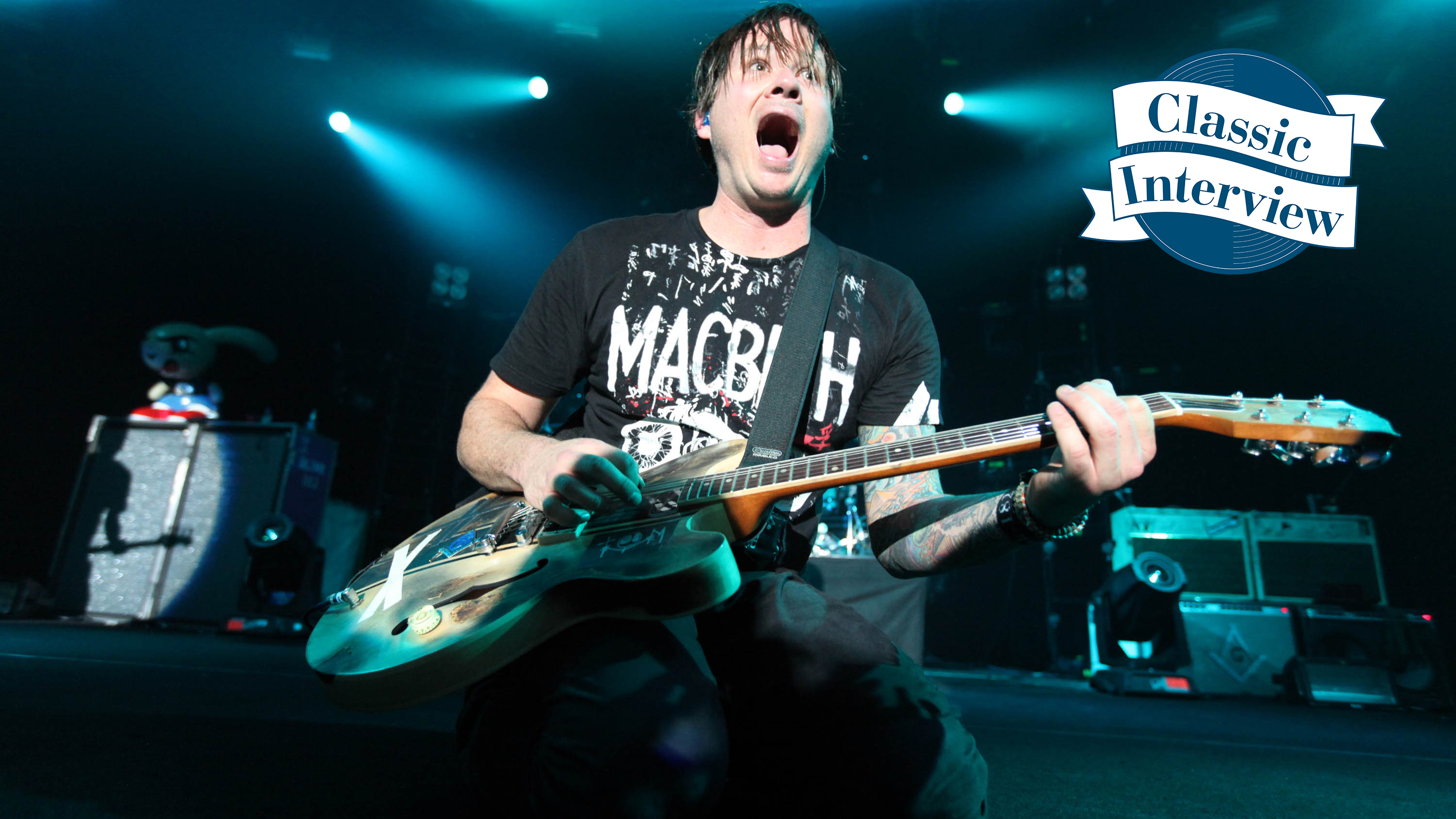
Back in 2012 we sat down with Tom DeLonge when he was out on the road with Blink-182 celebrating their 20th anniversary. Here he looked back chronologically on his story up until then…
Nearly three decades into a gigantically successful career with Blink-182, Box Car Racer and Angels & Airwaves, Tom DeLonge has finally found his true songwriting voice.
“They say Einstein died while he was still trying to figure out gravity. I think I’m going to die still trying to figure out some of the things about Blink,” Tom DeLonge tells TG, deep in thought as he assesses the punk trio’s longevity.
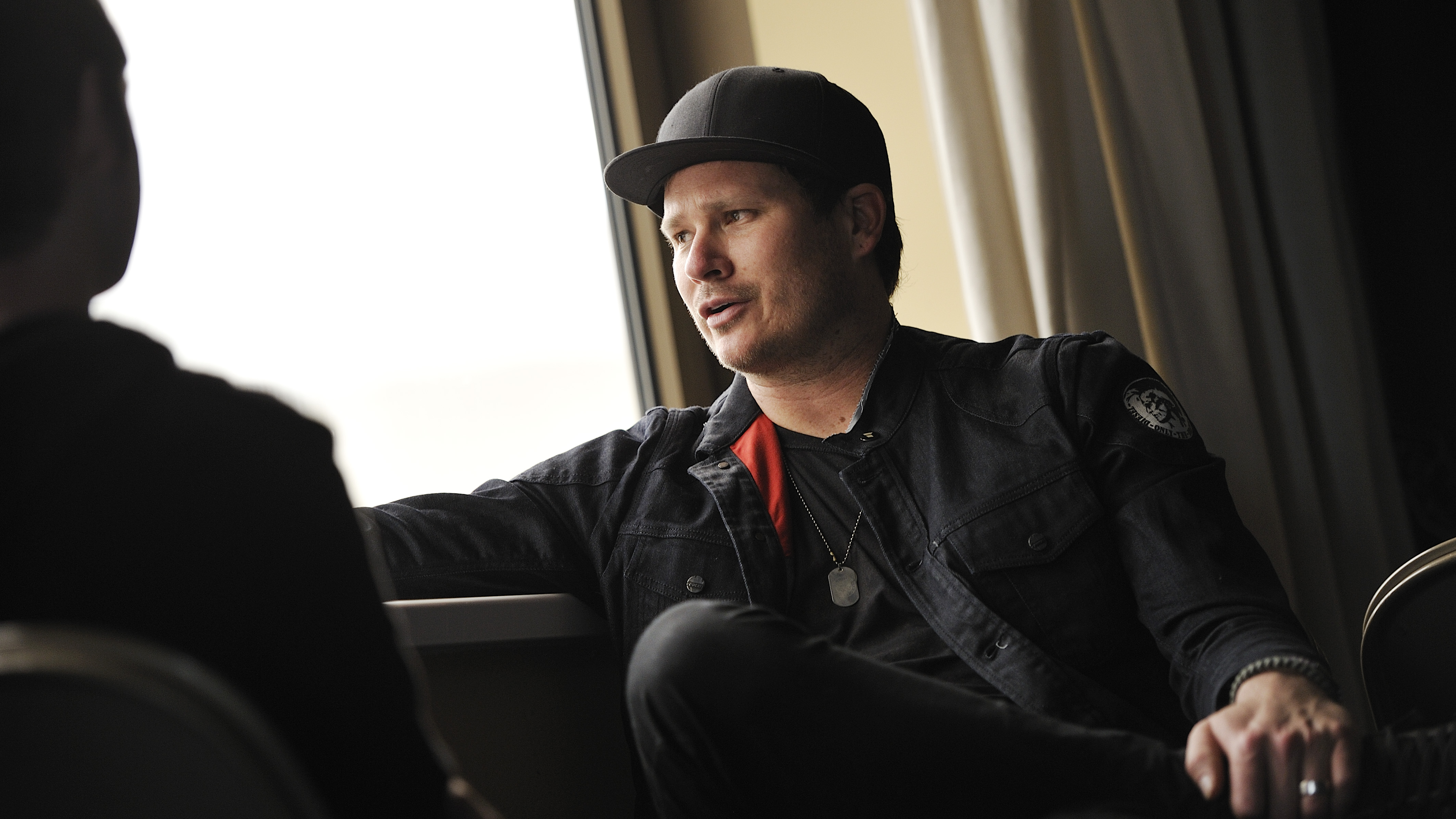
While DeLonge ponders how a bunch of suburban brats went on to become million-unit shifting pop-punk kings and eventually experimental rock statesmen, he may want to deconstruct the seismic shifts his own playing has undergone in two decades.
From a punk-obsessed teen concerned only with playing faster and with more distortion than anyone else, to the effects-loving, prog-influenced song- crafter that stands before us, DeLonge’s journey has been as surprising as it has successful.
Blink 182 – Buddha (1993)
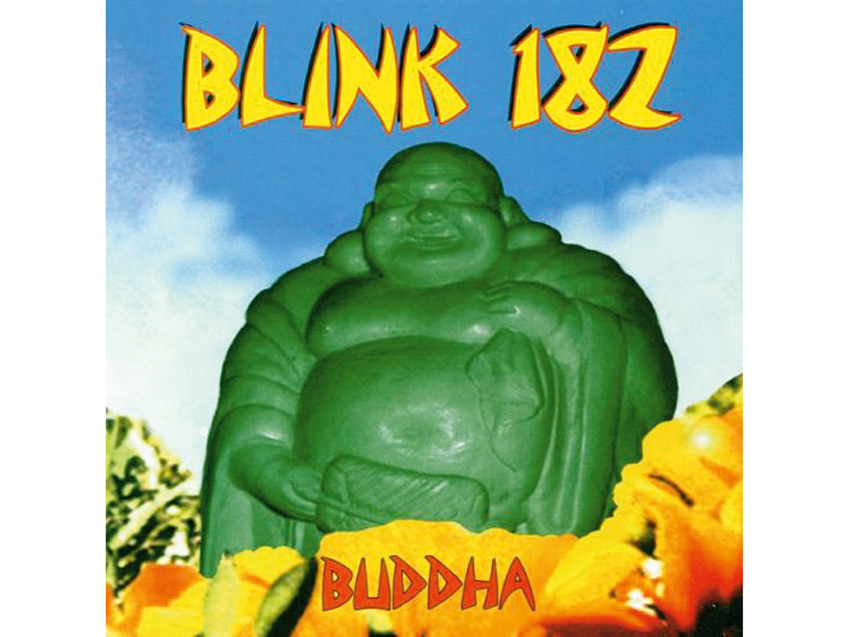
The third of three early Blink demos, this fast and furious beauty may have been recorded in two days, but it soon had the labels knocking at DeLonge and Co’s door.
Who were your influences in the early days?
Want all the hottest music and gear news, reviews, deals, features and more, direct to your inbox? Sign up here.
“It would have been strictly the Descendants. I was trying to emulate that band. Really punchy guitars, fast, simple and formulaic nursery rhyme love songs.”
How about your approach, riff-wise?
“My entire thing was that there is one guitar player, so Mark [Hoppus, bass] and I both tried to play as if we were two. I would do these arpeggio things and riffs that were half riff/half chords or something just to try and fill in the space.”
Carousel remains a fan favourite today...
“I was thinking about it the other night. I was playing it and thought, ‘Why am I playing this?’ The lyrics are so bad, but I guess it’s nostalgic, which is cool.”
The Mesa/Boogie Triple Rectifier was key to your early sound, wasn’t it?
“I used to use Mesa/Boogies because I thought they sounded crazy and distorted. Over time [my sound] got cleaner and cleaner, so now I’m on the Vox AC30 with very little distortion. In the early-90s that kind of Mesa/Boogie sound was a key element to my kind of music. I don’t know why I used them... I didn’t know any better.”
Blink-182 – Dude Ranch (1997)
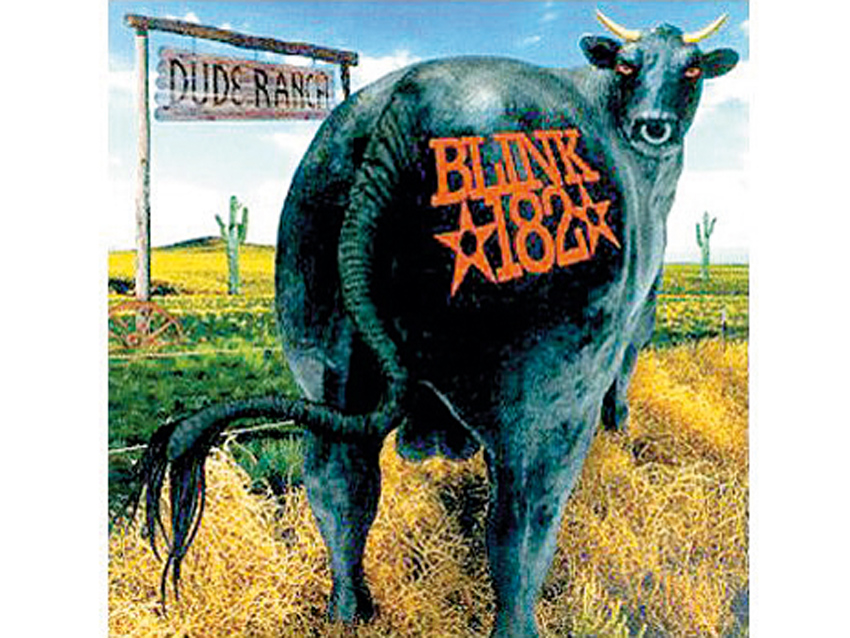
Now signed to MCA Records, Blink swapped some of the teen reckless abandon for pop hooks on Dude Ranch and spawned a genuine modern punk classic.
Do you think you’d begun to mature as a songwriter by Dude Ranch?
“Absolutely. That was the first record where we were beginning to get into mainstream, formulaic arrangements. We spent five weeks on that recording. That was a huge jump for us.”
Were you also finding your feet as a guitarist in terms of sound and tones?
“That was when we started getting into Marshall [JCM900] amps and the tones started going a little bigger and better. The only thing that was bad about that album was the jokes we made up on the inside of the album cover.
"I remember sitting at the Sombrero taco shop going, ‘F**k, we’ve got to finish off our album cover, let’s just write some jokes to these cowboy pictures.’ Why did we do that? We should have had better jokes for those pictures.”
And Dammit was a huge hit...
“That is one of the best songs we’ve ever written. Mark wrote that one. That’s probably the best song. It’s so timeless and represents our band because it’s about growing up, it’s perfect.”
Blink-182 – Enema Of The State (1999)
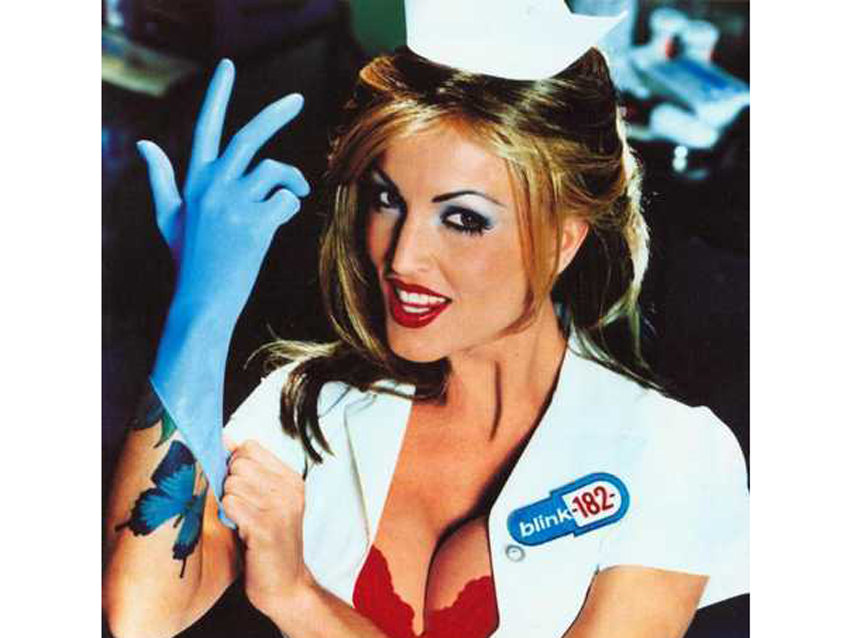
In 1999, Blink-182 went stratospheric. Smash singles All The Small Things and What’s My Age Again helped Enema Of The State go on to sell more than 15 million copies, making Blink one of the biggest bands on the planet as the new millennium approached.
Was Enema Of The State another big jump?
“For Enema... we spent four months recording and we had [the late punk producer] Jerry Finn producing – we learned everything. We learned how to record, how to play good, he didn’t let anything pass.
"There still weren’t any computers really, so it was all to tape and you had to play it right. We really trusted him.”
How did Travis Barker joining the band effect your playing?
“It was like, ‘Now anything’s possible, we can play any kind of song.’ Mark and I instantly played better because we were keeping up with someone who played everything perfectly so we became a lot better at that time. We were nowhere near as good as Travis, but we got better.”
Blink-182 – Take Off Your Pants And Jacket (2001)
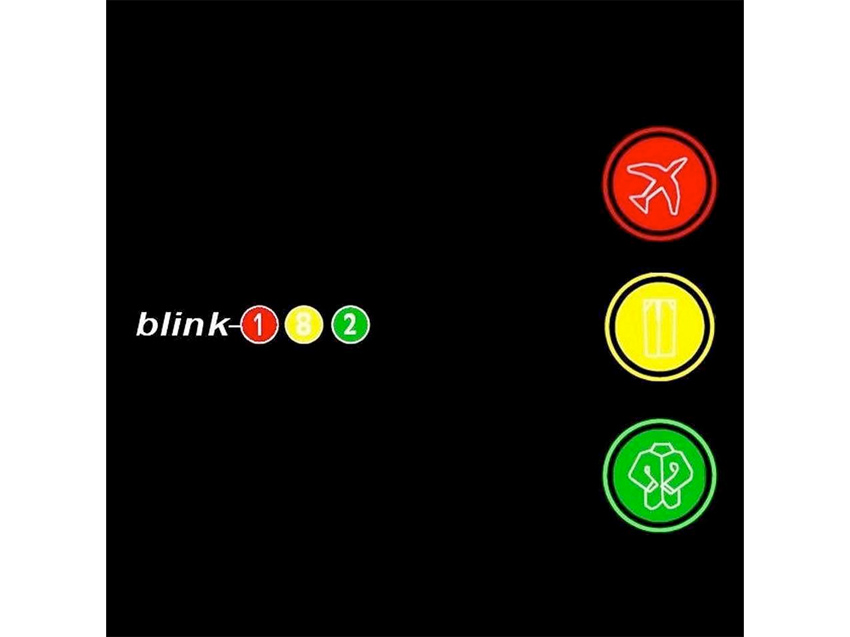
Another risque title and packed with sugar-fuelled pop-punk hits – yup, it’s more of the same from Blink. It worked, though, and sold 350,000 copies in its first week alone.
There must have been huge pressure to follow Enema... with a carbon copy.
“We were just trying to write songs that were better than Enema... but we weren’t taking any leaps and bounds creatively. There was pressure, but not too much. I mean, we wrote songs about f**king pirates and dogs.
"I remember the label came down to hear the big follow-up and those were the only songs [bonus tracks F**k A Dog and When You F**ked Grandpa] we played them. Oh my God, they lost their minds. We had this song about f**king Hitler - we changed it to 'when you f**ked grandpa’, but it originally was, ‘When you f**ked Hitler did he tell you that he loved you?’ They lost it.”
Was this when you first began experimenting with your sound?
“From a guitar point of view, the biggest deals were all of the clean tones and using all of these different chorus pedals, flangers and delays – just really light, tasteful touches. But I didn’t really accept pedals in my heart until later.
"I was so slow. F**k! I was just into punk-rock. I thought we were cooler than every other band. I thought punk was way cooler and we knew something other people didn’t know. Now I look and think, ‘F**k, there was a lot I didn’t know!’”
Box Car Racer - Box Car Racer (2002)
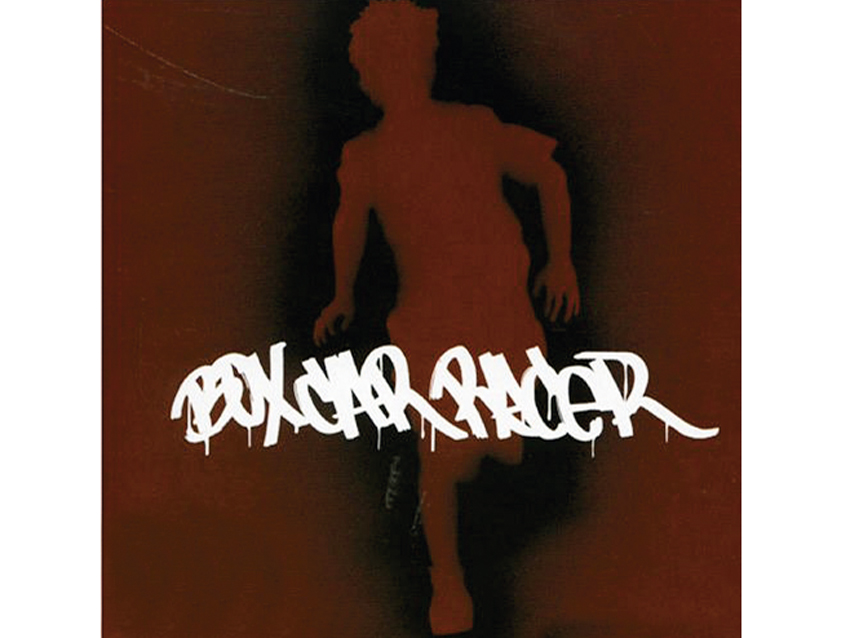
The change begins. DeLonge and Barker strike out with a new band, discovering effects pedals, heavy riffs and... red paint.
Was this a watershed album for you?
“I was getting kind of bummed out in the studio [with Blink]... It’s probably my fault because I never said, but I just wanted to get in there and try things out, but you feel like you can’t because the band is paying for studio time.
"It’s almost like you have a canvas and all of these paints but somebody says, ‘No, don’t touch those now, we’ve just got to get the blue on the canvas,’ And you say, ‘But there’s red!’ ‘No, get the blue done, maybe they’ll be time for red later.’ And with Box Car I just wanted to do that.”
That must’ve been a liberating experience...
“I went into Box Car Racer thinking I could do whatever I wanted and I was going to do a completely different thing using delay pedals, giant heavy guitar riffs, loops. That changed me dramatically.”
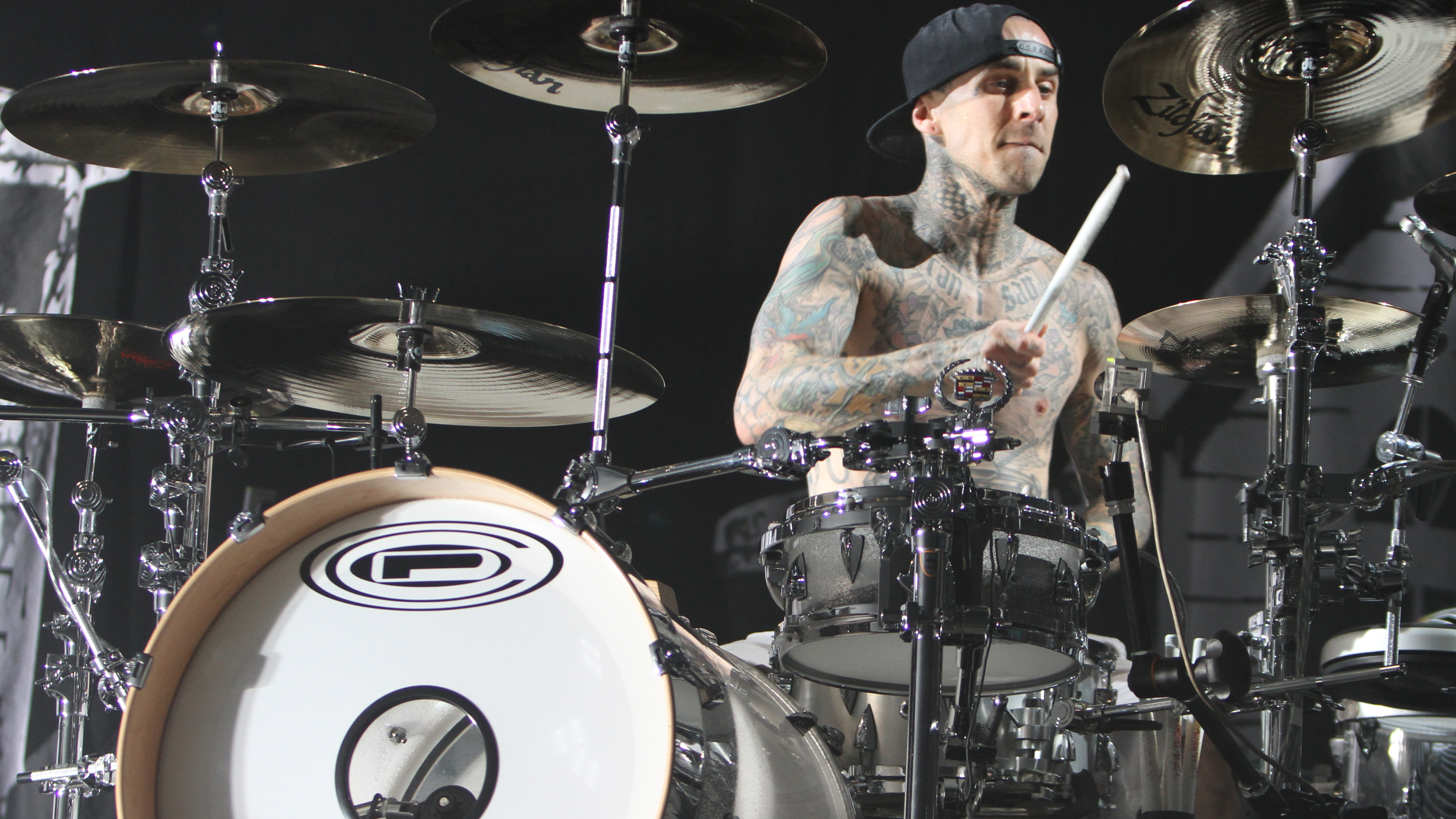
Do you remember the first of those heavier riffs that you came up with?
“All Systems Go. It was a big heavy riff, it sounds like [influential NY melodic hardcore band] Quicksand, it has huge guitars and was the first time I’d written a really heavy riff. That was so good for me.”
Blink-182 – Blink-182 (2003)
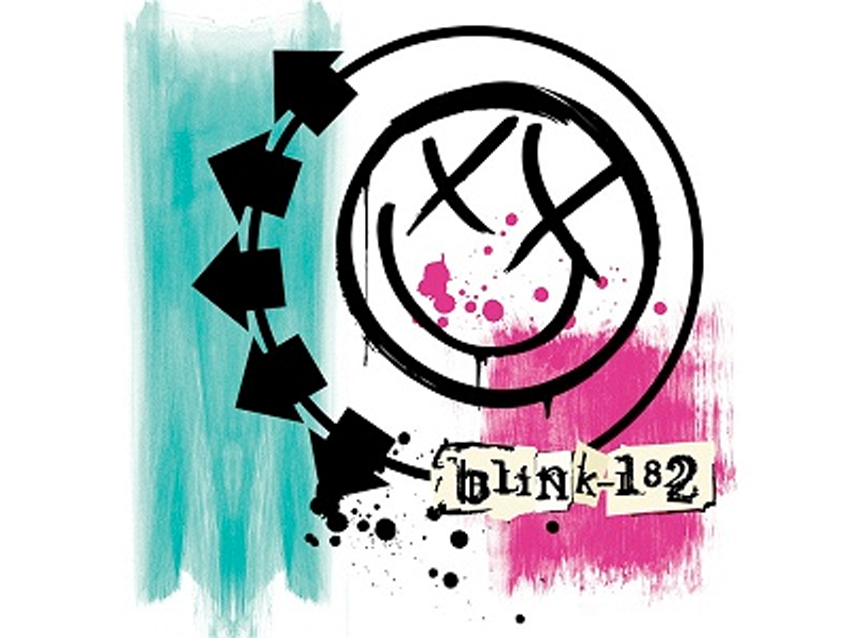
DeLonge brings his new Box Car Racer vibes back to Blink, creating an album that they didn’t seem to have in them – less gags, more experimental sounds.
It was a definite step away from your mainstream pop punk guitar sound.
“That’s the time we started doing lots of weird stuff: acoustics, clean, pedals, mic’ing techniques, everything was weird. Even doing the song All Of This with Robert Smith from The Cure, that song was really hypnotic and all acoustic, and then on I Miss You there’s not one electronic instrument.”
Angels & Airwaves - We Don't Need To Whisper (2006)
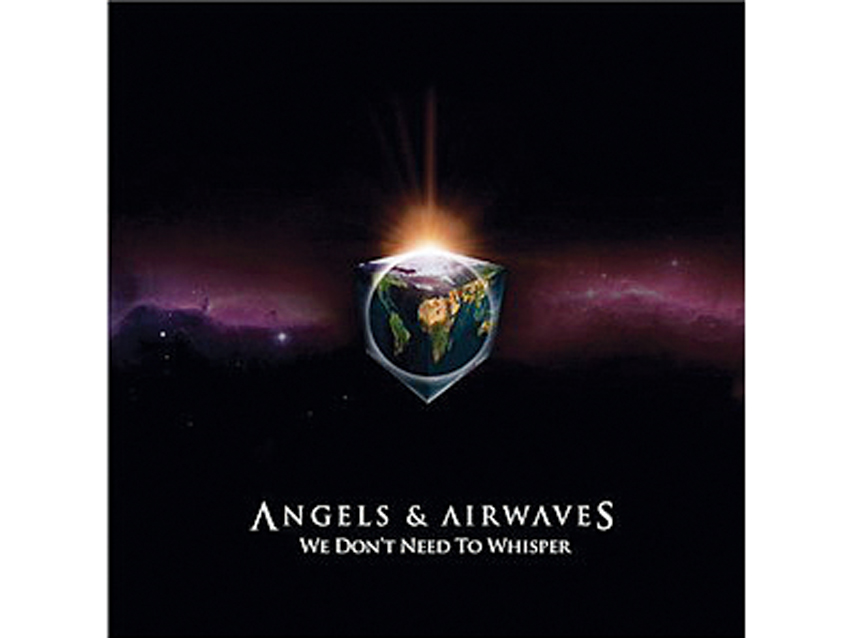
Where was your head when you were putting Angels & Airwaves together?
“That was more than Box Car Racer. That wasn’t me testing myself, that was redefining myself. I changed everything, I changed all of my amps, learned how to produce, how to play piano, learned all about pedals, I learned everything.”
Did having a second guitarist in the band change your playing?
“It was good to have those options. [With Blink] I was always stuck in this framework that it had to be certain way because we could only perform it a certain way, and people would think that we’re cheating or something. That’s wrong. We shouldn’t have ever thought that way but I did so I stuck to such a specific template. That slowly started to change.”
How did your rig change?
“I went to Voxes [AC30H2] and Fender ’65 Twin Reverbs together. That changed everything for me. A Mesa/Boogie is like a nuke: you plug it in and it fills up every piece of the sonic spectrum. If you use a Vox and you ring out a chord it only fills that one specific spot in the spectrum and you need other things to happen.”
Blink-182 – Neighbourhoods (2011)
On their first album for eight years, Blink returned with their darkest effort to date.
What was it like making a record together after so much time away from Blink?
“I think we weren’t unified as a band. If we were to start now we’d be much more unified. Mark was in his studio in LA, I was in San Diego, everyone was so busy. Out of recording for a year, we were only in the studio as all three of us together for a total of one or two weeks.
"We only wrote songs together for three days. The rest was emails. But we accomplished it and that’s the big thing. The first song I sent over was Up All Night. People say that sounds like Angels on a Blink record. Well, no – that’s just me.”
Your influences have clearly changed since Buddha. Whose playing stands out for you now in terms of guitarists?
“The Edge. He plays really simple s**t for the most part and then he adds some really progressive s**t on it and it becomes its own deal. He’s interested in writing songs and having diversity in songs and that really resonates with me.”
Does that highlight the changes your sound and style have undergone?
“I don’t listen to punk any more, unless it’s right before I play. Not that I don’t like it, it’s nostalgic. But, it’s for kids and it should be... it’s not art, it’s expression. I feel like you need to know art, too. I’ve changed as a person, I’m a new dude. I’m a superhero now!”
- Blink-182 will tour the world in 2023 and 2024. More info at blink182.com